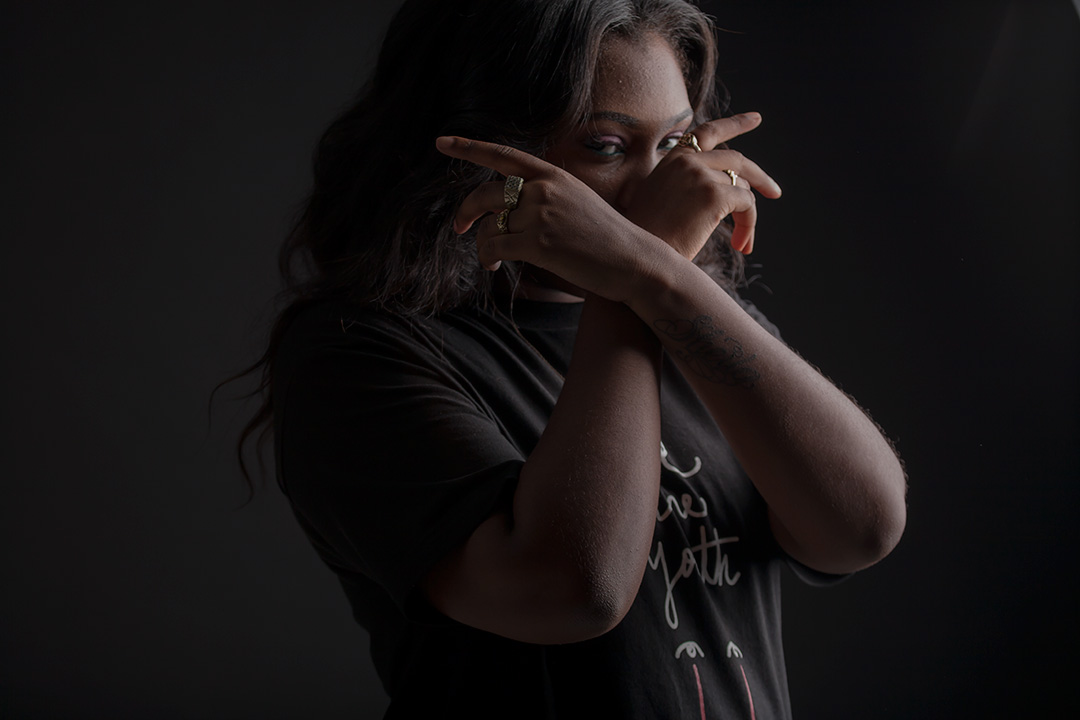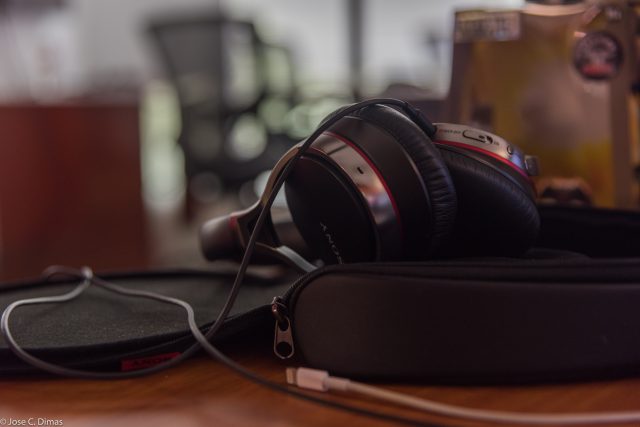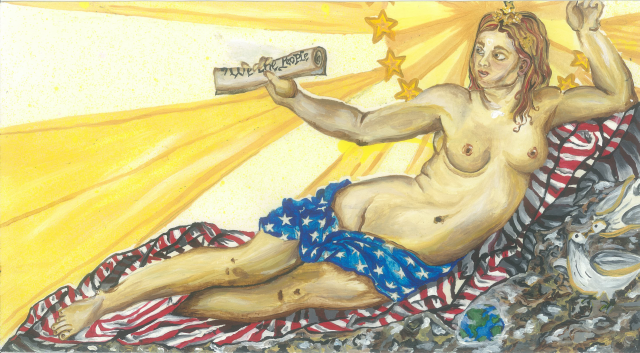Photo by Martin Bustamante
By Fayola Perry
In the 1995 movie “Friday,” Craig, played by Ice Cube, and Smokey, played by Chris Tucker, are sitting on Craig’s porch when the resident dope fiend, Felisha, played by Angela Means, comes by and asks them to borrow a car, a joint and a couple of other items. After the pair engage in a back and forth with her, Craig asks Felisha to excuse herself from the stoop by uttering the now infamous phrase, “Bye Felisha.”
This year’s end of summer blockbuster biopic, “Straight Outta Compton” chronicled the rise and fall of the legendary rap group, N.W.A. in which Ice Cube was a founding member. He also wrote, as well as starred in, the movie “Friday.” In the biopic, it is revealed that Felisha is also the name of a woman who managed to make it back to the group’s hotel room. She is asked to leave the hotel room when her boyfriend and his posse came to the hotel room asking for her. An altercation ensued and that’s when we hear the phrase, “Bye Felisha” uttered upon her exit. Since the movie’s release, it’s been confirmed by members of the group to have originated there and then made its way into the “Friday” script shortly after.
The phrase has been popular in black communities, but with the use of apps like Twitter, the phrase spread like wildfire to the rest of the world. When it became a trending topic on “Black Twitter” where it no doubt trickled down and made it’s way into lexicon across the interwebs and into the mouths of the unknowing.
The use of “Bye Felicia” in popular media is a very basic example of cultural appropriation. The hordes of people who think they can relate, but in reality cannot, who use social media and say Felicia “isn’t actually a person,” in their Tumblr posts or say things like “it’s just something people say” have no idea that they are diluting and distorting the significance of the phrase. The statements essentially undermine the importance of cultural symbols and ignore the origin of cultural symbols, which are taken for granted in popular discourse.
Cultural appropriation is the concept in which the elements of one culture are used by another outside culture. It is typically viewed as a negative phenomenon because the culture being borrowed from is usually ignored both intentionally and unintentionally.
Cultural appropriation can often be seen in aesthetic trends, costume choices for Halloween and in the popular media adoption and glorification of linguistic patterns and physical attributes as they trend.
Taking it a step further, cultural appropriation often refers to a particular power dynamic in which the member from a dominant culture, in this example WASP (White Anglo Saxon Protestant) ‘culture’ is the dominant, hegemonic culture, that takes elements from a group they systematically oppressed, in this example, the oppressed are black people.
Pretty problematic, right?
There is someone in the back of their classroom right now reading this in preparation for Halloween, wondering if they’re a racist because they wanted to wear a feather headdress and moccasins as their costume.
The answer to that question is yes and no. It’s more complicated than Donald Trump’s relationship with poor people.
There is this tricky gray area between cultural appropriation, where people take without attribution of origin and cultural exchange, a situation in which both parties have a mutual appreciation, fascination and willingness to understand the complicated and intricate histories and power dynamics in play.
Cultural appropriation minimizes and trivializes the history of oppression. What may seem so small to one group can be a haunting reminder of traumatic experiences to another.
Cultural appropriation allows people to show love for a culture, but still hate the people from that culture. As comedian Paul Mooney once said: “everybody wants to be a nigga, but don’t nobody want to be a nigga.”
“Hunger Games” actress Amandla Stenberg posed the question, “What would America be like if we loved black people as much as we love black culture?”
Both of their statements allude to the idea that using aspects of Black culture or participating in parts of Blackness is great as long as I continue to have the ability to move around and avoid certain situations and power dynamics in the privileged body that is usually not Black.
Another way to conceptualize this is to think about the Bay Area and it’s inhabitants in the quest for authentic Mexican food without having to go into dangerous neighborhoods to get it. Dangerous neighborhoods is usually code for areas that are heavily occupied by people of colour, in this case it’s Mexicans and or Latinos. It says that I’m entitled to your culture, but I would never want to be you or have to deal with you.
Appropriating culture makes things okay for one group while making it taboo for another. Things that people of colour are reprimanded for and ostracized for are okay when White people do it. A lot of this can be seen in hair trends. In popular fashion magazines black hairstyles like bantu knots and cornrows are given new names like “mini buns” and repackaged and reimagined on white bodies.This makes it socially acceptable but instantly deemed “ghetto” and unprofessional when worn by the people who originated it. The feelings of the privileged who are more often than not white, are prioritized and hierarchically situated above marginalized people of colour. Marc Jacobs is deemed a trendsetter for sending “mini buns” down the runway while the original creators never receive credit. Much like the phrase “Bye Felicia.”
Cultural appropriation sanitizes and spreads lies about people’s culture. It takes away the story Felisha, the addict who represents and symbolizes so many black and brown women’s struggle with drug addiction in that era and makes her a passing internet trend.
This lack of attention to detail can perpetuate racist stereotypes. Someone may think they are paying homage to someone’s culture and the person whose culture they’re paying homage to is completely offended at the misrepresentation.
Fear not, you can enjoy a great burrito if you are not Latino and do yoga if you’re not Indian, but be thoughtful, check your privilege and be considerate of context and history. Everyone has some type of privilege, people of colour appropriate each other’s cultures as well. We must all be mindful of our lens, other people’s perspectives, the legacy of oppression and try our best to make sure that we are not continuing it. At the very least, know where the appropriated element came from and at the very, very least, spell her name right. It’s Felisha, not Felicia.







